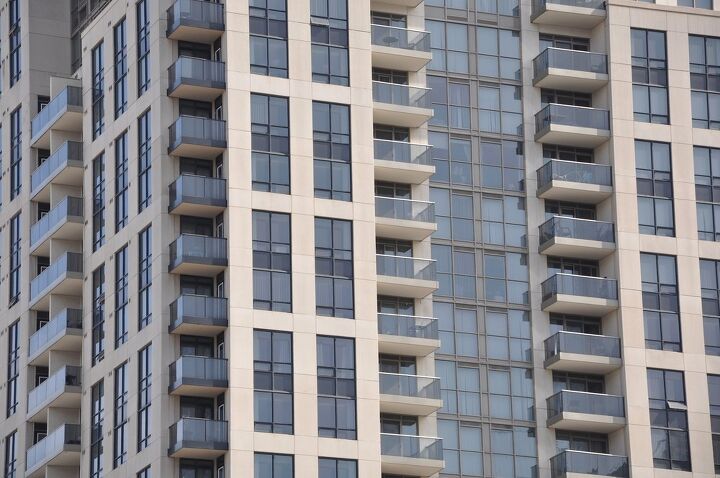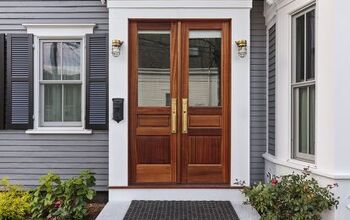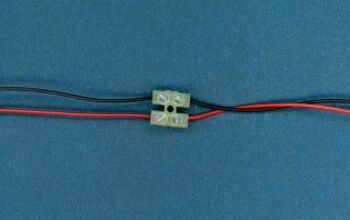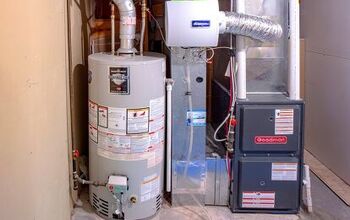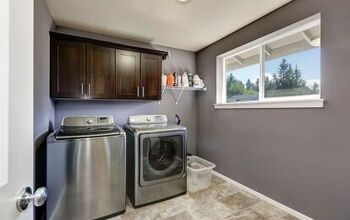Can A Condo Association Force An Owner To Sell? (Find Out Now!)

Condos are a unique type of real estate. On one hand, it’s like an apartment that you can rent. On the other hand, you have to deal with condo associations, which almost can act like a landlord. They can cite you, they can make your life a nightmare…but can they actually go so far as to force a condo owner to sell?
It depends on state laws, but the general rule is that condos would have to get a majority owner vote for a bulk sale if they want to force an owner to sell. For the most part, condos do not have the ability to force a sale. However, if a condo owner is putting people in danger, they may engage with the courts for a force sale.
It’s actually fairly rare to hear about condominiums that actually go so far as to make a person sell their unit. However, it can still happen. This guide will give you a heads up about what you should know.
Do You Need to Hire Movers?
Get free, zero-commitment quotes from pro contractors near you.

Before We Begin: A Legal Disclaimer
We at UpgradedHome are not lawyers, but we do know that real estate laws change drastically from state to state. The best way to ensure that you find out your specific rights is to refer to your condo’s handbook and discuss the matter with a qualified legal professional.
When Can Condos Force Their Owners To Sell Their Units?
For the most part, condo associations do not legally have the right to tell people to sell their units. You bought your unit, and you have the right to keep it as long as you still pay your COA fees. However, there are exceptions to this rule. They include these three major events below.
A Bulk Sale
Many condominiums have provisions for bulk sales, as well as moments where the HOA dissolves. Both situations have to be voted on by all owners of the condo in most cases. Bulk sales happen when the majority of the condo owners in your community have agreed to sell their homes en masse.
The minimum number of votes for this will usually range from 75 to 90 percent of the owners in the condo. If a vote is held and that number is reached, you will have to sell off your condo whether you like it or not. In most cases, it’s a welcome change. Things have to be really bad for this to happen.
Chapter 11 Bankruptcy
Is your HOA struggling to make ends meet? Are you having a hard time getting them to accept contracts that work towards the bare-bones maintenance of your home? It could be likely that you will see the condo’s association declare bankruptcy. Most of the time, they will do Chapter 11.
The overall stipulations of declaring Chapter 11 can vary based on the individual condo’s stipulations, but in many cases, it involves the condo selling off large portions of units. If this gets pushed through, you may be forced to leave. Thankfully, this declaration often has to go through a voting process, too.
The Neighborhood Nuisance
Remember when I said that condo HOAs do not have the right to force you to sell? It’s true. However, that doesn’t mean that they won’t turn to the courts if they have enough evidence to do so. If they’ve given you repeated warnings, fined you, and possibly even had police come to your door, there is a chance courts may get involved.
This is particularly common when neighbors threaten to sell off their homes, or if neighbors complain that they don’t feel safe at home. If the courts allow for it, then you could very possibly have a court-mandated sell-off. It’s their way of saying, “We don’t want you hear. LEAVE!”
Building Condemnation
If you have paid attention in recent years, you may remember the condo tower that collapsed near Miami. This story acted as a cautionary tale for many people who wanted to buy condos about the importance of building safety. Understandably, this should also highlight why some condos should be condemned.
If you are in a situation where the state has stepped in and condemned the building, a certain process comes to mind. This process can vary from city to city, but here’s what *could* potentially lead to your condo being forcibly sold off:
- The condo residents have to leave. Condemned buildings are not safe to live in.
- The HOA has the right to fix it, but if they don’t, this usually leads to a dissolution. The dissolution can happen in 3 months or in 3 years, depending on what the situation is.
- If the condo building has been abandoned or left empty for a specific number of years, the government may offer a small sum of money to get you to sell it. This is literally what eminent domain is meant to be for. Most of the time, the government approaches the condo association to get the ball rolling. Ergo, the condo association will usually be the one to facilitate this.
Area Restriction
On a similar note, there is yet one last issue that may make a condo association force its members to sell their homes. Or rather, it’s not necessarily the condo association but the actual federal government. In this case, the area your condo is in probably faced a major, cataclysmic disaster—such as the Love Canal Disaster.
Much like condemnation, an area restriction means the government is stepping in on your behalf. It’s a safety matter. When this occurs, the government will get you and your belongings evacuated to a safer area. Then, they will offer to buy you out of your home to ensure that you can find reasonable lodging elsewhere.
Also like condemnation, the government usually goes through the HOA for this.
Can Condo Associations Force You To Sell If You Don’t Pay Their Fees?
When you agree to buy a condo unit, you are also entering into a community. This comes with an agreement that you will help pitch in for condo fees. When you skip those fees, several things can happen. You might get sued. You may get warnings. Or, you may end up having other penalties.
Technically, the condo still does not have the right to force you to sell your home. However, they do retain the right to foreclose on your home. From here, the HOA can technically take you to court and take control of your home through any outstanding liens you have.
When this happens, you have one or two options that you can pursue depending on where you live. You might be asked to leave, or you may have to go to court to settle the case. In some cases, you also might be able to remove the liens by paying off what you owe.
Should You Sell If The Condo Association Asks You To?
It’s important to note that the condo association that you have doesn’t have all the power in the world. In most cases, they cannot legally kick you out of a home that you bought. It has to be an extreme situation for that to occur and you usually have to go out of your way to be a terrible neighbor.
However, if your condo association asks you to leave after several writeups, you might want to consider it. In many cases, this is a sign that you have managed to tick off your neighbors one too many times. This is the HOA’s way of peacefully asking you to stop what you’re doing or end up in court.
Do You Need to Hire Movers?
Get free, zero-commitment quotes from pro contractors near you.

Related Questions
Why are condo HOA fees so high?
Condo HOA fees are one of the biggest expenses that you could have. These fees involve the overall insurance that your condo needs in order to function, as well as the costs you need to pay for regular maintenance and repairs. These fees also may cover salaries for larger admin jobs if you have a bigger condo, plus the taxes that you need to pay to the city.In some rare cases, you also might be covering certain utilities and services, such as garbage collection.
What makes a good condo association?
There are several things that people should look for when they try to find a new condo community. Strong rules and a history of keeping the area well-maintained are a good start. However, you also should look for a condo association that keeps its costs reasonable.If you notice that a condo association has poor reviews or that there seem to be several complaints about obnoxious management, it probably won’t be a good fit for you.
Are co-ops and condos the same thing?
Not quite. Co-ops are buildings that you don’t really own, but own a share of the business that owns it. Condos allow you to own your part of the building. Both of these types of attached homes are excellent for people who want to have an apartment type of lifestyle while also building up equity. With that said, it’s best to research before you buy.

Ossiana Tepfenhart is an expert writer, focusing on interior design and general home tips. Writing is her life, and it's what she does best. Her interests include art and real estate investments.
More by Ossiana Tepfenhart



